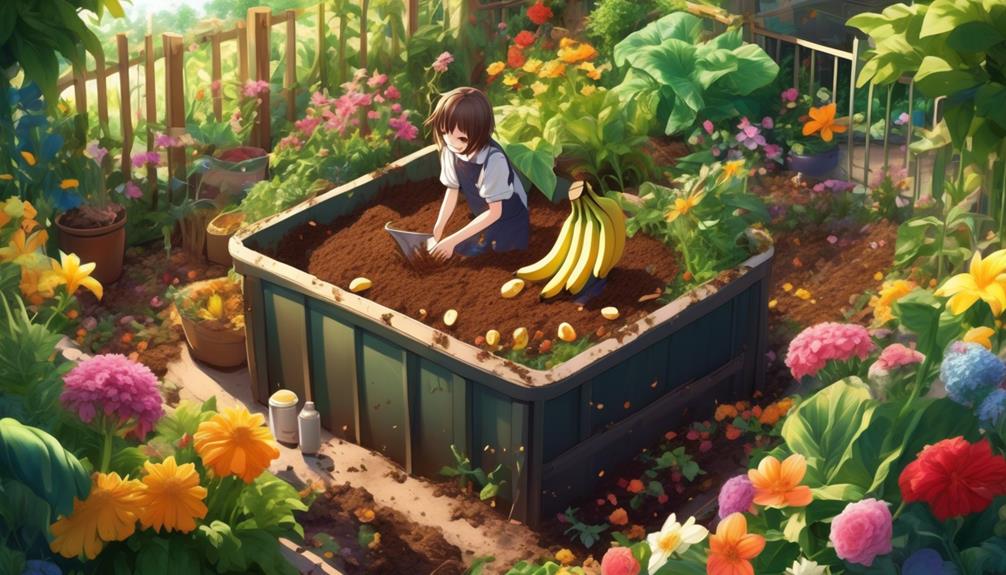Are you tired of spending a fortune on store-bought fertilizers that are packed with chemicals and synthetic additives?
Well, it’s time to take matters into your own hands and discover the wonders of making your own organic fertilizers for your vegetable garden.
By using simple household items and natural ingredients, you can create nutrient-rich solutions that will nourish your plants and promote their growth.
But that’s not all, these homemade fertilizers also have the added benefit of being environmentally friendly, reducing waste, and improving soil health.
So, why settle for store-bought when you can give your vegetables the best with your own homemade organic fertilizers?
Organic Plant Food…
- Rice water, pasta water, potato water, and vegetable water can all be used as organic fertilizers in vegetable gardens, providing essential nutrients for plant growth.
- Eggshell water and crushed eggshells are beneficial organic fertilizers, rich in calcium, which helps prevent stunted growth and diseases in plants.
- Banana peels are a great source of potassium and can be used fresh, turned into a liquid fertilizer, or dried and powdered to enrich the soil.
- Coffee grounds are pH neutral and rich in nitrogen, making them beneficial for plant growth, and they also deter pests and improve soil health.
Rice Water
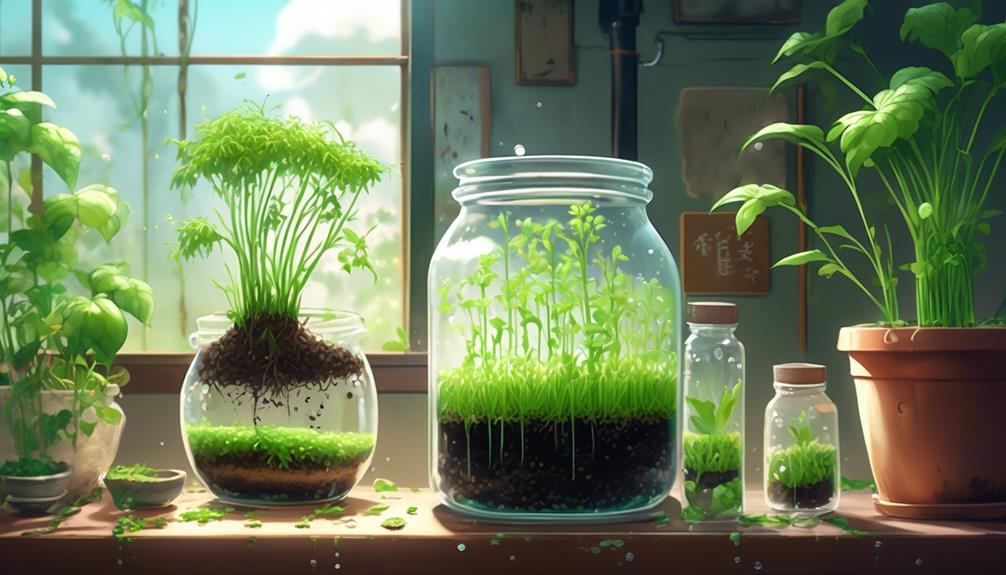
Using rice water to water garden plants can be a cost-effective and environmentally friendly way to provide essential nutrients to your plants.
Rice water is the liquid that remains after rice has been soaked or boiled.
It is rich in nutrients such as starch, vitamins, minerals, and amino acids, which can greatly benefit the growth and health of garden plants.
One of the main nutrients found in rice water is starch, which acts as a natural fertilizer for plants. Starch helps promote healthy root development and encourages strong growth.
Additionally, rice water contains vitamins such as vitamin B, which is essential for plant metabolism and overall plant health. The minerals present in rice water, such as potassium, phosphorus, and magnesium, help in improving soil fertility and enhancing plant growth.
The amino acids found in rice water also play a crucial role in promoting plant growth and providing resistance against diseases.
To use rice water in your garden, you can start by collecting the water that is left after rinsing or cooking rice. Allow the rice water to cool down before using it on your plants.
You can apply rice water to your garden plants by either pouring it directly onto the soil or using it as a foliar spray. When using rice water as a soil drench, make sure to water the plants thoroughly, ensuring that the roots receive the nutrients.
As a foliar spray, rice water can be diluted with water and sprayed directly onto the leaves, allowing the plants to absorb the nutrients through their foliage.
It is important not to overuse rice water as excessive application may lead to nutrient imbalance or attract pests. Using rice water as a supplement to regular watering can help provide a natural boost to your garden plants and contribute to their overall vitality.
Rice water isn’t only a valuable organic fertilizer for vegetable gardens but also has been used for centuries in skincare routines.
In ancient Japan, women would collect the leftover water from rinsing rice and use it as a beauty treatment for their skin and hair. Rice water is rich in vitamins, minerals, and antioxidants that can help improve the overall health and appearance of your skin.
Pasta Water
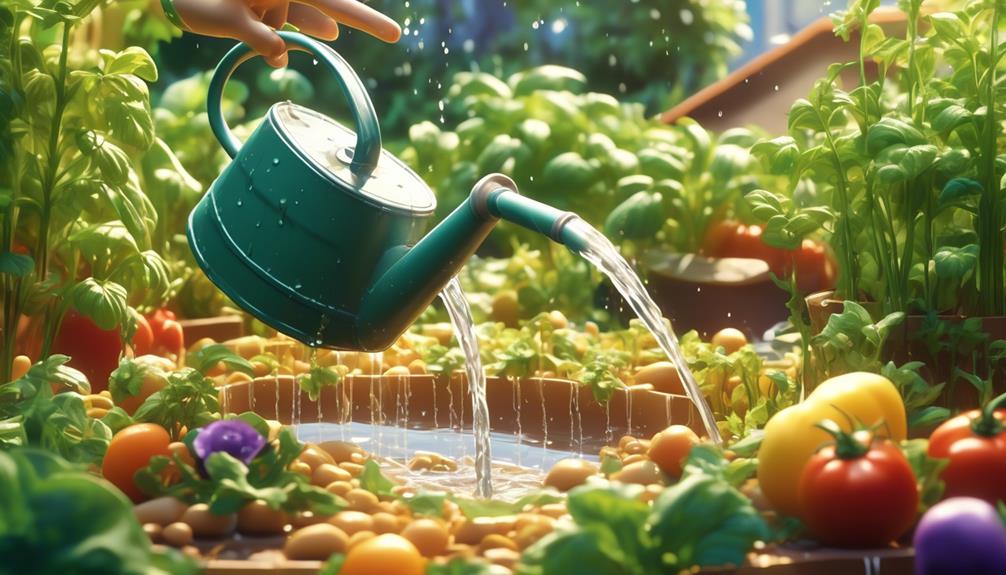
Another kitchen staple that can be utilized in your vegetable garden is pasta water.
Believe it or not, pasta water contains valuable nutrients that can contribute to the health of your plants. When you cook pasta, the water becomes starchy and retains small amounts of NPK (Nitrogen, Phosphorus, and Potassium).
These nutrients are essential for plant growth and development.
Nitrogen promotes leaf and green growth, while phosphorus supports cell growth and division in seedlings. Potassium, on the other hand, encourages fruiting and flowering.
By using pasta water as a plant fertilizer, you can replenish these crucial nutrients in your soil. To maximize its benefits, simply let the pasta water cool down and then pour it over your plants or mix it into the soil. This way, your plants can absorb the nutrients and thrive.
Potato Water
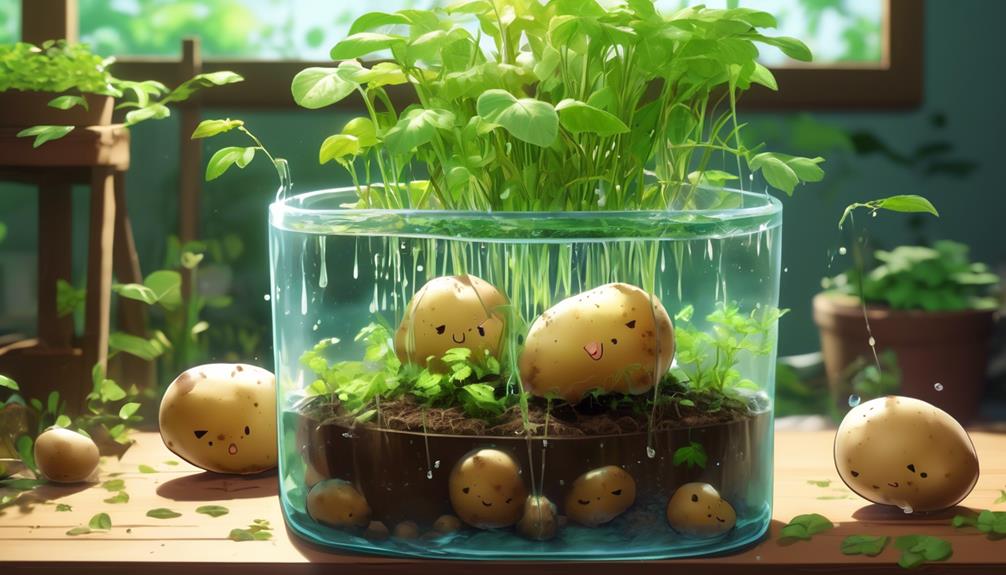
Potato water, a valuable kitchen byproduct, contains essential nutrients that promote plant growth and development. The starch and small amounts of NPK (Nitrogen, Phosphorus, and Potassium) found in potato water are beneficial for plants in various ways.
Nitrogen stimulates leaf and green growth, while phosphorus is crucial for cell growth and division in seedlings. Potassium, on the other hand, promotes fruiting and flowering in plants.
Replenishing these nutrients in the soil is important as plants use up different levels.
| Nutrient | Role in Plants |
|---|---|
| Nitrogen | Stimulates leaf growth |
| Phosphorus | Promotes cell development |
| Potassium | Enhances fruiting |
Instead of pouring potato water down the drain, consider utilizing it in your garden.
Simply collect the water after boiling or steaming potatoes and allow it to cool.
Then, dilute it with an equal amount of tap water before using it to water your plants. Be sure to avoid using potato water that has been salted or seasoned. Additionally, if you have a compost bin, you can pour the potato water directly onto the compost pile to enrich it with nutrients.
Eggshell Water
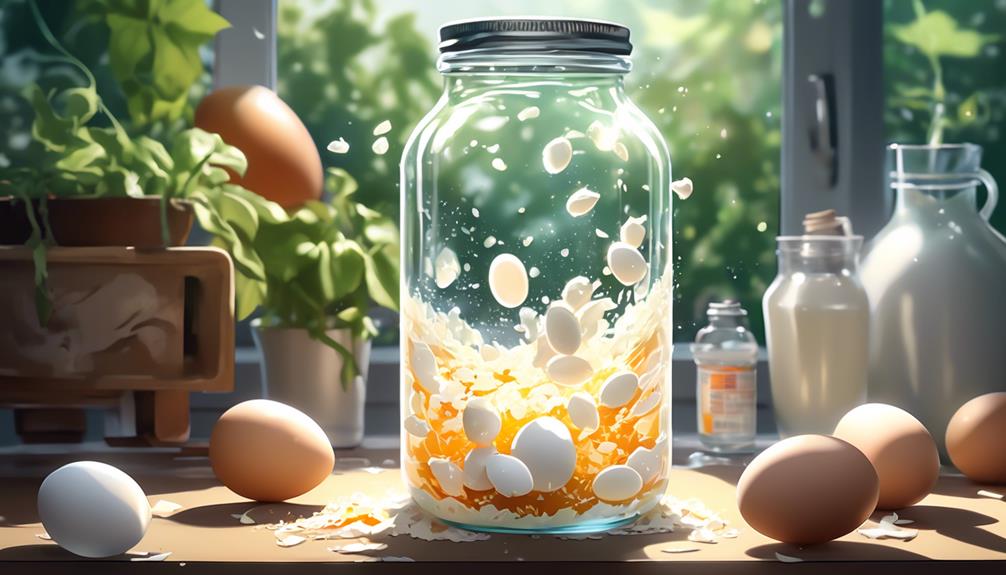
Don’t let any kitchen waste go to waste – now let’s move on to another valuable organic fertilizer: eggshell water. This homemade liquid fertilizer is a great way to provide nutrients to your plants, especially those in your vegetable garden.
Here are three reasons why you should consider using eggshell water as a fertilizer:
- Calcium boost: Eggshell water is rich in calcium, an essential nutrient for plant growth. By adding this homemade fertilizer to your soil, you can help prevent calcium deficiency in your plants, which can lead to stunted growth and diseases.
- Waste reduction: Instead of throwing away your eggshells, you can repurpose them by making eggshell water. Boil or steep the crushed eggshells in water to extract the nutrients. This not only reduces kitchen waste but also provides a natural source of nutrients for your plants.
- Cost-effective solution: Making your own organic fertilizer, like eggshell water, is a budget-friendly alternative to store-bought fertilizers. It’s a sustainable way to nourish your plants without having to spend extra money.
To make eggshell water, simply save your eggshells, crush them, and boil or steep them in water. Let the mixture cool before using it to water your plants. You can leave the crushed eggshells in the water and add them to your garden too.
Remember, if the eggshell water has a strong odor, it’s best to use it on outdoor plants. Start making this nutrient-rich fertilizer today and watch your vegetable garden thrive!
‘Did You Know? Eggshells aren’t only beneficial for plants but also for animals. Crushed eggshells can be added to chicken feed to provide a calcium boost, promoting strong eggshell formation in hens.’
Vegetable Water
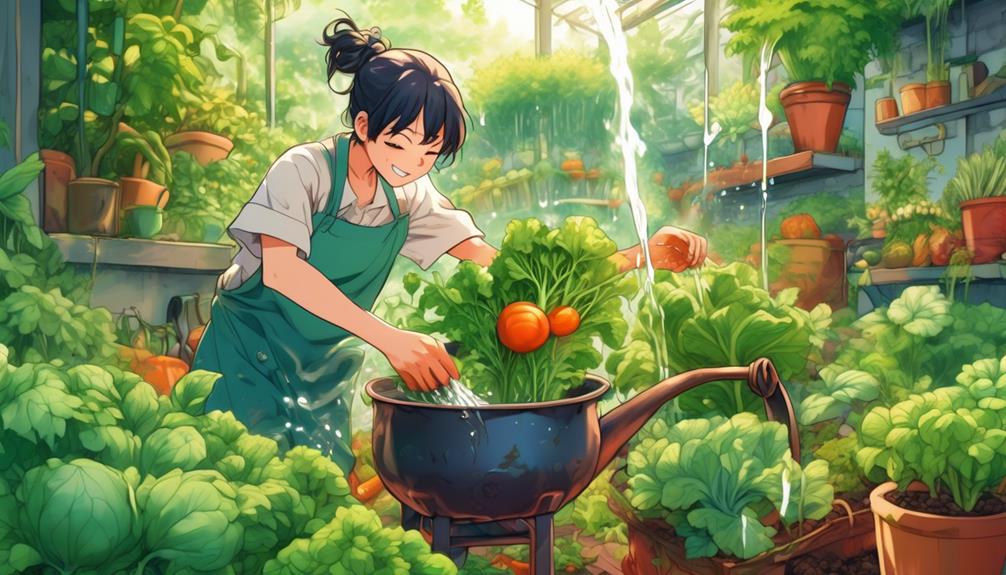
To utilize the benefits of vegetable water as a natural fertilizer, follow these simple steps.
After cooking vegetables, instead of pouring the water down the drain, collect it in a container and let it cool. Once cooled, use it to water your plants.
Vegetable water contains starch and small amounts of NPK (Nitrogen, Phosphorus, and Potassium), making it a nutrient-rich liquid fertilizer for your vegetable garden.
By using vegetable water, you can replenish these essential nutrients in your soil, ensuring the health and vitality of your plants.
It’s a simple and cost-effective way to make your own organic fertilizer using plant matter that would otherwise go to waste.
Banana Peels
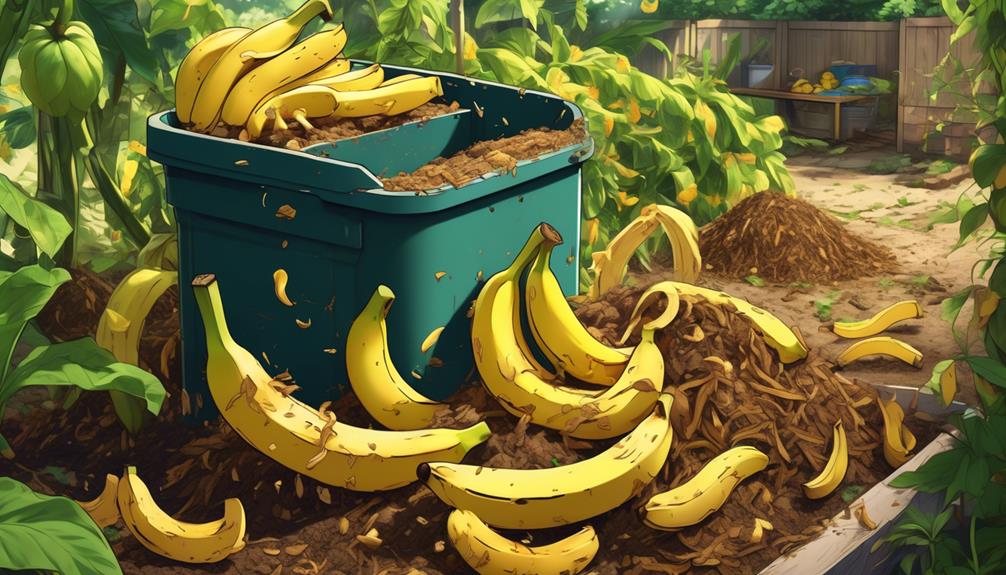
Banana peels aren’t just waste; they’re a valuable source of potassium, making them a great addition to your organic fertilizer regimen.
Here are three ways you can use banana peels to boost the nutrients in your vegetable garden:
- Composting method: Chop banana peels into small pieces and add them to your compost bin. The peels will break down over time, releasing potassium and other trace elements into the compost. This nutrient-rich compost can then be added to your garden beds, providing a natural and organic fertilizer for your plants.
- Fertilizer Tea: Soak chopped banana peels in water for a few days, then dilute the mixture and use it as a liquid fertilizer. Pour the fertilizer tea around the base of your plants, ensuring that the roots can soak up the potassium-rich solution. This will help strengthen the plants’ cell walls and improve the flavor of the fruits or vegetables they produce.
- Dried and powdered: Another option is to dry banana peels and grind them into a powder. This powdered form can be sprinkled around the base of your plants or added to your compost pile. The potassium in the powdered peels will slowly release into the soil, providing a sustained nutrient boost for your plants.
Coffee Grounds
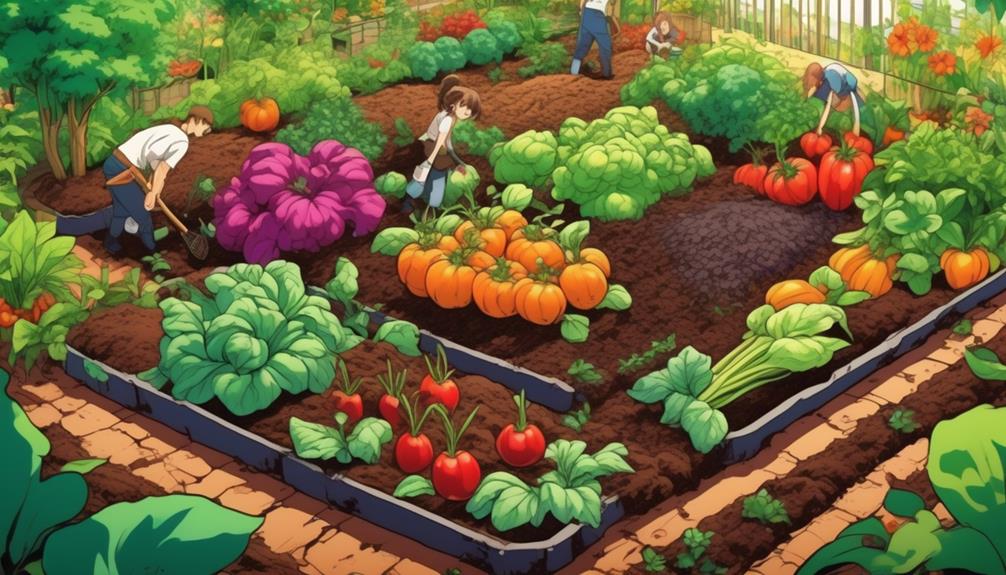
When it comes to organic fertilizers for your vegetable garden, another beneficial option to consider is coffee grounds.
Used coffee grounds are nearly pH neutral and rich in nitrogen, making them a great addition to your garden soil. They can provide your plants with the nutrients they need to grow and thrive.
Coffee grounds can be used in various ways in your garden.
You can sprinkle them around your plants or add them to your compost pile.
Another option is to use them as a liquid fertilizer by steeping the grounds in water for a few days and then using the strained liquid to water your plants.
Coffee grounds also have pest control benefits. They can deter pests like slugs, snails, and ants from damaging your plants. Additionally, coffee grounds can serve as a food source for earthworms, which improve soil health and fertility.
However, it’s important to use coffee grounds in moderation, as excessive use can result in acidic soil. So, be sure to use them sparingly.
Overall, incorporating coffee grounds into your vegetable garden can be a practical and effective way to promote healthy plant growth and improve your soil’s nutrient content.
‘Did You Know? Coffee grounds can also be used to repel cats from your garden. The strong smell of coffee is often disliked by cats, making it an effective natural deterrent.’
Liquid Plant Food…
Creating your own organic fertilizers for your vegetable garden from kitchen waste is a simple and cost-effective way to provide essential nutrients to your plants. By using household items like rice water, eggshells, and coffee grounds, you can promote plant growth and overall health.
With a variety of homemade fertilizer recipes available, you can tailor your routine to suit the specific needs of your garden, ensuring successful and bountiful harvests.
